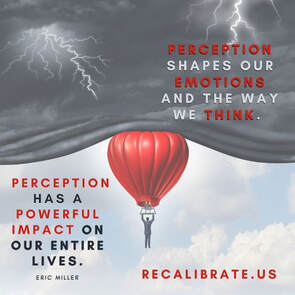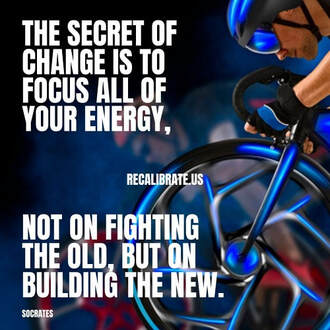Eric Miller
Leadership Blog
CATAGORIES
HACKS FOR REDUCING EMOTIONAL LABOR5/26/2020 How to Get More Done with Other PeopleHACKS FOR REDUCING EMOTIONAL LABOR My first professional leadership role was when I was 29 years old, when I managed a mobile device store in Saint Cloud, Minnesota. I had a small staff of eleven, wherein I was the second youngest. Despite the leadership training I received in the Army, I remember feeling frustrated while leading veteran sales staff. More often than not, I was stuck in emotional labor. I was managing my feelings to fulfill the emotional requirements of my leadership role. The now outdated military training of “you better do it or else” would prompt me to lose my temper and express hostility. This resulted in high performing sales staff who had been tops in sales for the entire division leaving, while others were underperforming. How to Avoid Emotional HijackingHaving a limited, narrow outlook creates more stress and impacts our careers and personal lives in a negative way. our perception shapes our emotions and the way we think. In a nutshell, perception has a powerful impact on our entire lives. After we have reframed any limiting perceptions, we can choose our emotions and not allow circumstances to choose them for us. An expansive, positive outlook allows us to function with greater ease and less stress. Take Action with These Eight Steps 1. Realize what is happening- Stop yourself as quickly as possible when you feel a situation going badly. 2. Hit the pause button- Visualize yourself hitting the pause button at the start of an overwhelmingly negative feeling or emotion. 3. Learn the signs- Look for your physical signs. What is your body language telling you? Example: Change your posture and your environment. 4. Challenge the story or belief- Is the story you are telling yourself the truth or your perception of the event? Challenging the story for the facts will keep your emotions from getting hijacked. 5. Take a time-out- Stop what you are doing and get away from the situation, so you can let your emotions simmer down. 6. Talk about the situation as if you were a third person- This is a really powerful resource because it disassociates you from the feeling. For example, I would say to myself, “Eric is looking a little sad today.” 7. Observe from outsiders viewpoint- See the event as an observer. How would a stranger see this? How would a friend or colleague see it? How different might they see the situation than you would? 8. Apply compassion and empathy- Be kind to yourself. Ask yourself, why am I feeling this way? What’s making me feel this way? What else could I feel right now? You can also apply empathy to the other person. Ask yourself, How could they be feeling about this? What am I feeling toward them that is correct? How can I care, love, and accept them more? You can shift yourself by doing this. Here Are Other Factors that Effect Emotions 1. Self-Image- Our language and their meanings create beliefs and values that form our identities. Example: I’m not good enough, or I’m not worthy of success. Challenge the belief and conflict the belief to create new ones. 2. Tiredness- Push down emotions when feeling exhausted. Be cautious when engaging with team members. 3. Hunger- when hungry, we can be short-tempered. For many people, those times are 10 a.m., 2 p.m., and 4 p.m. Observe when you feel irritable, and get something to eat before addressing leadership tasks. 4. Food and Drink- The types of food we eat affects our moods. Diet is very important to emotions. Caffeine effects our moods and feelings. Fast foods that are high in trans fats and carbohydrates and low in protein destabilizes blood sugars that can lead to mood swings. 5. Relationships- They can take us to the peak of the highs and the depths of the lows. Knowing how to give and receive love is incredible. Knowing when something is wrong, and having the power to do something about it, will enable us to create the relationships we want. 6. Medication- Take a look at the effects of the medications that you might be taking. Many of them have emotional side effects that can cause emotional problems. If you are experiencing emotional side effects, tell your doctor. Recalibrate and Accelerate Performance Change your state of mind and change your life. It is a good practice to re-evaluate your values every three to four months. It can be eye-opening to see the changes in values. The conscious realization can also guide you in creating a new belief system that fits with your newly defined values. Are you ready to communicate more effectively and accelerate team performance? Let’s get started and create a strategic action map that will guide your executive decisions with laser accuracy. The Recalibrate Accelerate Performance system offers a thorough approach to creating positive change throughout your life. Our premium executive results training gives you the skills you need to create a leadership style that is sustainable and scalable in the long run. Comments are closed.
|
CONTACT ERIC MILLER
© COPYRIGHT 2018-2024 Owner's Ally, New Mindset Academy, Eric Miller-EMC
ALL RIGHTS RESERVED
TERMS OF USE
PRIVACY POLICY
© COPYRIGHT 2018-2024 Owner's Ally, New Mindset Academy, Eric Miller-EMC
ALL RIGHTS RESERVED
TERMS OF USE
PRIVACY POLICY

